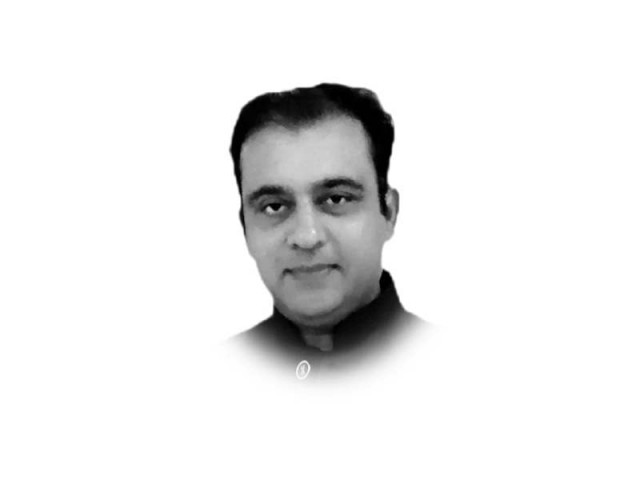Shehbaz, SCO and the ‘conspiracy’
But contrary to the news item, PM Shehbaz held bilateral meetings with almost all leaders, except the Indian PM

Days before Prime Minister Shehbaz Sharif was to travel to the historic city of Samarkand in Uzbekistan for the Shanghai Cooperation Organization (SCO) summit, a report by a TV channel claimed that there would be no sideline meetings with the leaders from Russia and China as they had refused to meet the Pakistani PM. The premise of the story was that since Imran Khan’s ouster through a vote of no-confidence, countries like Russia and China were not happy with the current dispensation in Pakistan. PTI supporters were quick to drive the point home that their leader’s removal from power was costing the country dear. An impression was created that with Khan’s ouster, nothing was working in Pakistan’s favour.
But contrary to the news item, PM Shehbaz held bilateral meetings with almost all leaders, except the Indian PM. Shehbaz’s meeting with Russian President Vladimir Putin was the most significant — in the backdrop of Khan’s persistent claim that he was removed from power through a US-backed conspiracy as he wanted to deepen ties with Moscow. Citing a diplomatic cable, Khan said Washington was not happy with his visit to Russia in February on the day Putin waged a war against Ukraine. There were media reports even in Russia endorsing Khan’s claim.
However, the Shehbaz-Putin meeting in Samarkand did not drop any hint if the bilateral relationship was affected because of the change of government in Islamabad. In fact, the transcript released by the Russian President Office clearly indicates that Putin was keen to deepen ties with the incumbent government in Pakistan. The Russian president noted that Moscow considers Pakistan as a priority in Southeast Asia and Asia as a whole. He then went on to talk about the potential projects the two countries could work on. He particularly mentioned the Pakistan Steam Gas Pipeline, a project that has been in limbo since 2015. The pipeline to be laid by Russia would bring LNG from Karachi’s Port Qasim to Punjab. The Russian President also offered supply of gas through a pipeline to Pakistan. Shehbaz in return expressed Pakistan’s willingness to further deepen cooperation with Russia. He went to call Russia a “superpower” and Putin “a man of word” — something that is unexpected from a Prime Minister accused of being installed by Russia’s archrival i.e. the United States. An official, who accompanied PM Shehbaz to Samarkand, said Shehbaz and Putin had informal conversation too after their formal meeting. Putin also invited Shehbaz to visit Moscow.
The development contradicts claims that Pakistan may maintain distance from Russia after the change of government in Islamabad in April. While a lot of spotlight had been given to Khan’s visit to Moscow in February, the process of rapprochement between Pakistan and Russia began much before PTI formed the government in 2018. This is the point the PTI supporters often miss. It was in 2011 that was a turning point in Pakistan’s relationship with Russia. The year saw a series of debacles with the US that compelled Pakistan to diversify its foreign policy options. It was a unanimous decision of the Parliament and stakeholders that Pakistan will have to diversify its options on the external front given the unreliability of the US. Since then successive governments, including of PPP and PML-N, pursued quiet diplomacy with Russia to open a new chapter in the relationship. Khan’s visit was part of the rapprochement policy and not necessarily the beginning.
Shehbaz’s meetings with Putin, Chinese President Xi Xinping and Iranian President Ebrahim Raisi show that Pakistan’s push for maintaining a balanced foreign policy remains intact. Also one needs to understand that governments come and go, but the core interests of the states remain the same; and the same core interests were the driving force behind Shehbaz’s meetings with the leaders who are seen as US adversaries.
Published in The Express Tribune, September 19th, 2022.
Like Opinion & Editorial on Facebook, follow @ETOpEd on Twitter to receive all updates on all our daily pieces.
















COMMENTS
Comments are moderated and generally will be posted if they are on-topic and not abusive.
For more information, please see our Comments FAQ